
Lena Raine is a composer and producer based out of Seattle, WA. In 2018, she contributed the soundtrack to acclaimed indie hit Celeste, and released her own interactive novel ESC which she wrote, designed, and scored. She is also the co-composer for the MMO Guild Wars 2, scored the initial release of Hackmud, and self-published an EP titled Singularity under the name Kuraine. She is preparing to release her debut solo album in early 2019.
2018 has been one heck of a year for games, and as such I've not had nearly enough time to play everything I've wanted to! There's a ton of things I unfortunately was not able to complete in time for writing this list, so there's a lot missing that I'm still playing or have yet to get to! That said, here's my top 6 games I played this year.
6. Dragalia Lost
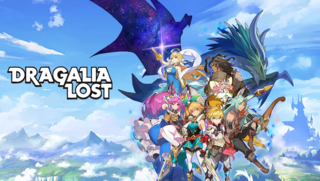
One of the big things that has dawned on me this year is that gacha mobile games are here to stay, and as a format they're going to continue to evolve in ways that it feels silly to not pay attention to. I was initially skeptical when Nintendo announced its collaboration with Cygames to create One Of Those, but by the time it released I had played enough Granblue Fantasy and All Those Attempts By Square Enix To Make Back FFXV Development Costs to understand the ups and downs of the genre.
The weird problem that mobile games have is that they need to be interesting enough to play, but not too deep as to bury players in endless strategy. The rewards need to be doled out at a pace to keep all of these things moving, but not give too much away so players still feel like they ought to buy in-game currency. It's a genre that feels awfully Designed and Manufactured and a result of Business rather than a passion for gaming, but it's intriguing enough for me to follow.
Dragalia is not without its flaws, but I feel pretty confident in calling it the best-designed gacha game yet. The main thing that it has going for it is its Nintendo polish. Everything feels like it's got the exact right timing on its transitions, its animation, the way things bounce along to the catchy (mostly licensed) DAOKO soundtrack. It feels good to navigate the menus, which in the case of gacha games, is 90% of the experience. The rest, actually battling, gives just enough control and strategy to feel like a polished button-masher. You wander around in a sort of Mana-like fashion, bashing enemies, taking advantage of elemental weaknesses, unleashing big moves, transforming into dragons. You do a whole lot, and it always feels cool, and that's really the strength of any game design aimed at keeping players coming back every day.
5. Cytus II
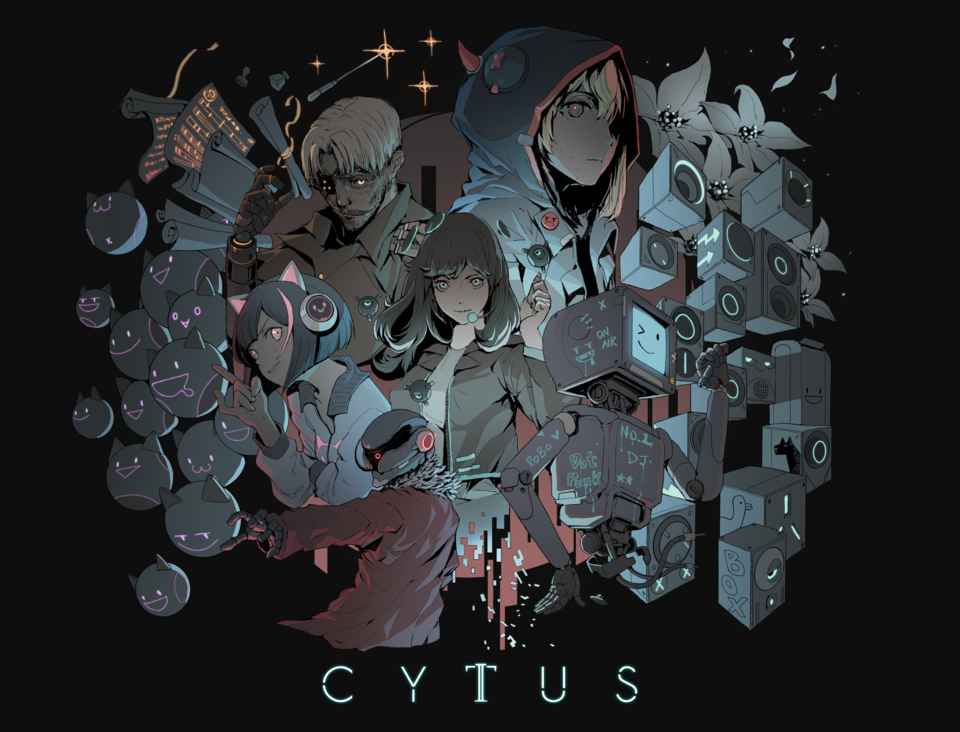
I extremely wasn't expecting to get as into a rhythm game as much as I did with Cytus II. I love the genre, but I really started falling off with them as soon as the PS2 era of quirky story-driven games like Gitaroo Man and Um Jammer Lammy stopped getting made. As much as I enjoy being challenged for my ability to mash through rhythmic button timings, it becomes a popcorn enjoyment rather than something I really dig into.
Cytus as a series immediately hooks you with its setting from the get-go, placing you in a world of an internet-confined reality & digital artists that release new tracks and rhythm charts to match. You're as much a part of the world as the characters themselves, and you unlock more story and songs by completing songs on varying difficulties, and checking the network for more posts and the too-real replies to these virtual celebrities.
Even cooler with Cytus II is the way each character owns a specific style within the realm of electronic music and beyond. Nowhere does this best than the character select screen, where a single Cytus II theme plays, but dynamically shifts between styles as you scroll through each character.
The game is on a premium model, where you can get the 1st three characters for its $2 entry fee, which includes about 12 songs per character, all of which are wonderfully curated & charted. Beyond that, there's a number of additional characters you can buy for $10 each. Provided that each includes about an album's worth of music, plus the story for their character, it seems totally worth digging into if you want to keep getting more out of the world.
The note charts are well designed to make you feel cool as hell, though some of the harder ones are a little unclear, especially once it starts throwing odd rhythms that take some time to figure out how they match up with the song itself. When they do, however, it's super exciting to play & get sucked into the game's world.
4. The Missing: J.J. Macfield and the Island of Memories
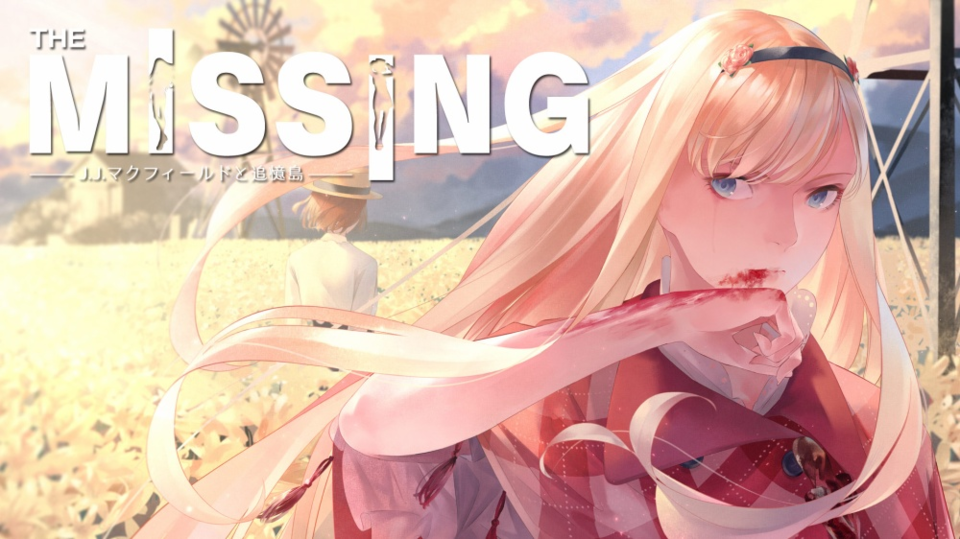
I'll be honest, I've never played a game by SWERY all the way through. I always saw people talk about Deadly Premonition, but I never felt intrigued enough to dive in. Perhaps because I have no real nostalgia for things like Twin Peaks or its other influences. But when I heard rumblings about The Missing, and its attempts to tackle difficult themes of queerness...both my girlfriend and I got very interested to give it a shot.
Admittedly, it is a difficult game to get through. In a lot of ways. My girlfriend mostly played it while I watched, and I did miss a few bits in the middle when she was struggling through odd puzzles involving giant wind-up monkeys and broken limbs. It is not a great game, but it uses its struggle in a way that resonated with the work we did on Celeste. While the latter is still tuned as a challenging game, The Missing uses its troubling and frustrating mechanics to reflect the messiness of living as a queer woman in this world.
The Missing shows its protagonist reflecting everything she feels through its mechanics. It's a nightmarish extrapolation of everything I've felt in my life. She hurts, cripples, mutilates herself in the ways I wish I could say were unfamiliar. Every time feels difficult to overcome. Every time feels unnecessarily violent. But it's in the weird ways that The Missing requires this embodiment of self-hate to progress. It creates a dreamlike scenario in which all of these ideations manifest and create the means to chase after what matters in life. To chase after self-acceptance
In a way that is so poignant to my own struggles, the end of The Missing is cathartic in a way that made me break down in tears. Hopefully it can do something for the others that play through it and feel something as well.
3. Deltarune Chapter 1
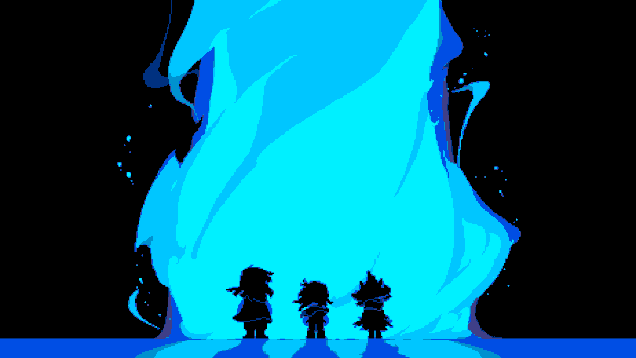
You know that thing that happens when you ambiently see people loving a game or series from afar for so many years that you either feel like you've experienced it already, or would rather avoid it than see what exactly it's all about? It's a weird feeling, because it creates an aura around something that you might otherwise be extremely into, warding you off from ever actually verifying whether or not you do in fact like it.
Undertale was that for me. It was one of those immediate successes that exploded to the point that I did buy and download the game several times, but never actually played it all the way through until its Switch release this year. Which is to say, I had bought and downloaded it, but hadn't started it on the new platform. Then Toby surprised everyone by dropping Deltarune.
Suddenly, it felt like a fresh opportunity to actually get into both releases. I was on a brief trip to New York and back, and it made the perfect chance to just dig into Undertale & then Deltarune when I got back home. I loved it. I was familiar with all the fan art, memes, everything, but it still felt like a fresh and wonderful experience that breaks the RPG conventions in a way that still dares future games to follow.
In Deltarune, which was actually released this year, Toby Fox takes what he proposed in Undertale (can you get through a traditionally combat-driven genre in an entirely non-violent way?) and brings it into a multi-member party setting. Instead of being a series of one-on-one vignettes with a small cast of characters, Deltarune uses an ensemble cast to explore not just personal interaction, but group dynamics and how you can use those to continue betraying the norm in RPGs. While it's still not a full release, it's sufficiently sucked me into a world that I hope to return to when the full game, however many years later, is finished.
2. Octopath Traveler
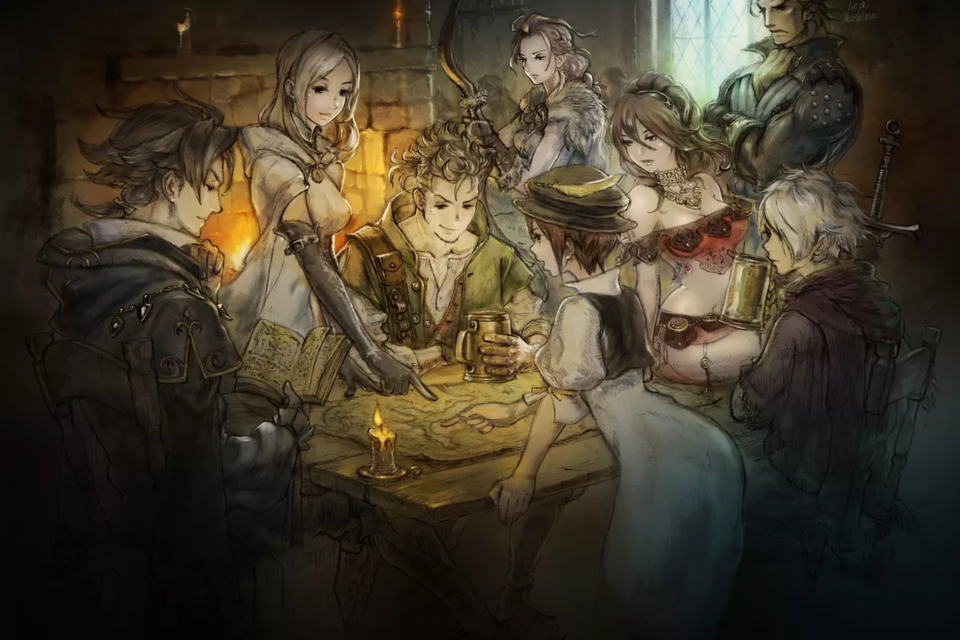
I've always wondered what a SaGa game would feel like without the baggage of the SaGa team. Octopath provides an answer that feels warm and inviting and doesn't ask the player to go on yet another quest to save the world. Instead, you accompany eight interesting people on their personal journeys across a well-established world.
Over the past 4-5 years, Square Enix have been putting a lot of effort into using teams of young developers to try and rediscover what made its original games so intriguing. Tokyo RPG Factory's I Am Setsuna and Lost Sphear really tried to go there, but the teams just didn't grasp the design strengths that launched even the more controversial RPGs into cult fandom. However, in teaming up with Acquire of all studios, the team that created Octopath Traveler seems to have finally understood and executed on what mechanically drives some of the best JRPGs.
One of the key detriments to I Am Setsuna, Lost Sphear, and the Bravely Default series was this fixation on the act of being passive or waiting as a key component to strengthening one's attacks. In an active time battle or turn-based system, waiting sucks! It's not great strategy, draws out battles unnecessarily, and makes even simple encounters a chore. With Octopath, however, it realizes that doing things like boosting up your characters is rad as heck, and uses that to create strategies in its battles. And then when you execute those boosted attacks, the way in which it pays off your power through visual effects & dramatic timing makes any battle feel super fun and exciting.
But it's the at-times mundane feel to the game that really draws me in. Octopath theorizes (on the whole) that the most interesting stories aren't just a hero's path to saving the world. It's a personal redemption or revenge, a sense of wanderlust and excitement. Those are the stories that I love, and it's super fun to see them play out in a genre typically reserved for the bombastic.
1. Timespinner
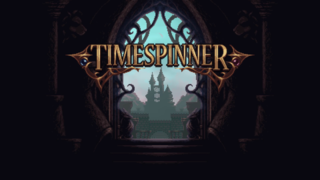
I was obsessed with Symphony of the Night when it came out. Outside of JRPGs, it was probably the most-played game I had on my PS1. I was an awkward goth kid in high school. I wanted to live in this weird nonsensical castle world I found myself exploring up and down and upside-down. I reconstructed the castle's layout in the text-based MUCK I roleplayed on, embedded MIDI arrangements from the game in the appropriate environments. It was a whole thing. Either way, all those embarrassing factoids aside, I know the game inside out.
Anyway, along comes Timespinner, and I had no clue it was in development until it dropped and I looked at some screenshots like... this looks, oddly familiar. I've played and own every Castlevania released post-SotN. They were great in their own ways, but they seemed stuck in two particular holes: They wanted to do something a bit too new, and were also restricted to the GBA and DS formats. I've been following (and Kickstarted) Bloodstained, in the hopes it would recapture what I loved about Symphony, but its development continues to stretch out. Meanwhile, this indie 'Vania shows up out of nowhere looking extremely inspired by a certain PS1 title.
And to its credit, it nails the aesthetic in ways that counts, but the reason it shines is because it isn't content simply replicating the mechanics and systems that made SotN great. In the ways that post-SotN Castlevanias try to differentiate themselves, Timespinner says nah actually let's keep it mechanically familiar. But then it changes the context. Weapons become orbs, and consolidate hundreds of similar weapons into concise archetypes. Spells change from obtuse fighting game inputs to charge attacks you equip, refined as an extension of the existing orb archetypes. All the changes make sense, and clarify an otherwise obtuse design from SotN.
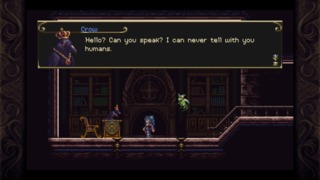
But then it also adds story. One that actually goes places, with a history of two global nations that are fundamentally flawed and both led in poor directions. But you're a time traveler tasked with finding some way to untangle the awful things done by all sides responsible. It's a refreshingly human take on a space opera scale conflict, set in a world that lets itself be both sci-fi and fantasy in interesting ways that don't fall into too many tropes. There's queer characters, a dominating charge of powerful women, and despite its reliance on text logs for filling in the world, I care a lot about this setting and its people.
For the first time in a long while, I lost track of time for hours while playing a game. There's things I'd change, like the general balance and difficulty getting a bit too easy to steamroll if you are a completionist like me, but as a whole it's brilliantly constructed and I'm super glad that it exists.